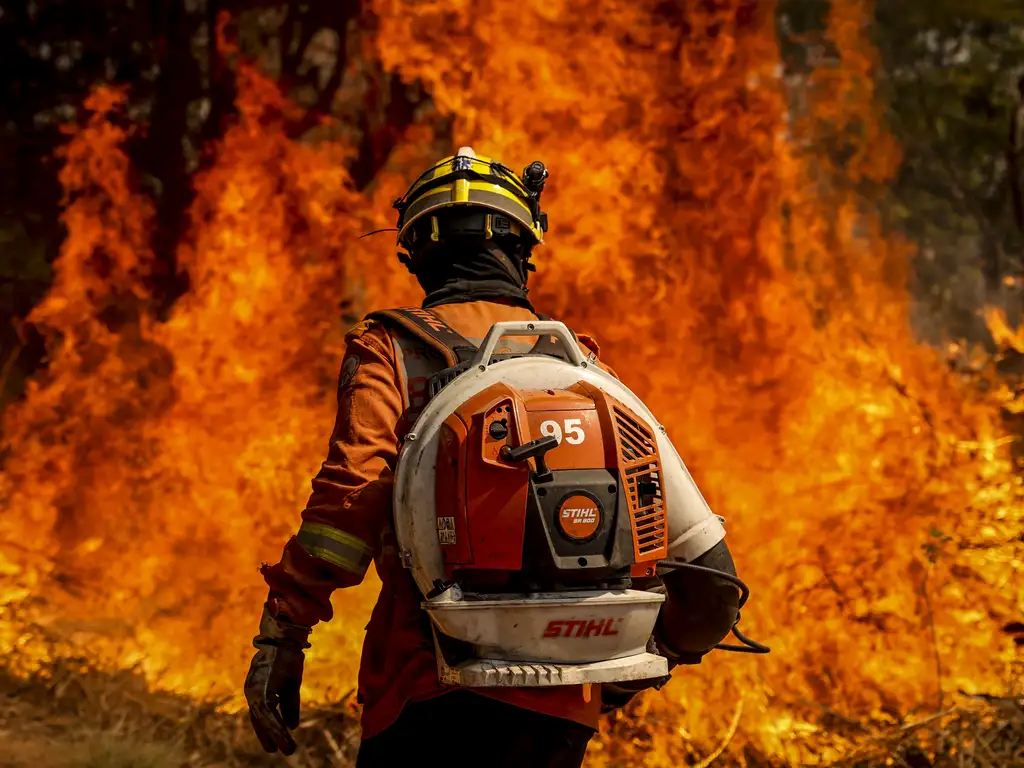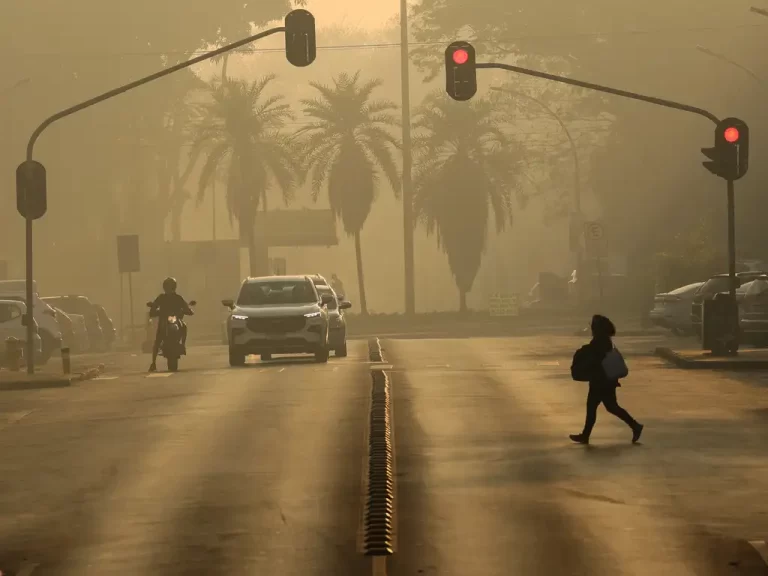Funds mobilize resources and actions in countries most impacted by the fires.

Firefighters battle flames on the front lines amid record fire occurrences. Photo: Marcelo Camargo/Agência Brasil
What is the recognizable face of climate change? In recent months, for Latin Americans, it has been one of fire. The news about the wildfires devastating Latin America is spreading across the globe, generating concern and sadness.
Since May, flames have ravaged forests and savannas, particularly in Argentina, Bolivia, Brazil, Colombia, Ecuador, Paraguay, and Peru. Brazil has recorded over 200,000 fire outbreaks, severely impacting the Amazon, Cerrado, and Pantanal. With over 7 million hectares of forests and natural vegetation destroyed, Bolivia has declared a national disaster. In Colombia, with more than 10,000 hectares affected, the regions of the Amazon, Llanos Orientales, and parts of the Sierra Nevada are among the hardest hit, while in Peru, thousands of hectares in the Andes and the Amazon have been devastated. In Argentina, the fires advanced from the north towards the country’s center, particularly in the Córdoba region. More than 180,000 hectares have already been affected in Paraguay, with the Paraguayan Chaco being one of the most endangered ecosystems.
Wildfires not only destroy natural environments; they deeply affect the lives of thousands of people who depend on these ecosystems for their livelihoods and well-being. In large cities, the image is of a smoke-filled sky, with a vibrant orange sun that takes our breath away—quite literally, for many. Traditional and Indigenous communities, who depend directly on the forests to sustain their ways of life, are severely impacted.

Although the causes of the fires vary — including intentional practices — one certainty remains: climate change is directly related to the increase in wildfires. The fire cycle is also clear to science. According to Global Forest Watch, worsening climate change, which makes conditions drier, increases the propensity for fires. On the ground, burned vegetation becomes, over time, even drier and more flammable. With more fires, carbon emissions from the burnings increase, perpetuating the process. According to a 2022 report by UNEP, the risk of extreme fires is expected to increase by 30% by 2050. These mass fires release alarming amounts of particulate matter into the atmosphere, pollutants that harm human health and the environment.
In response to this situation, the Socio-environmental Funds of the Global South member funds play a crucial role in supporting the most vulnerable communities. These funds maintain close proximity to the communities, enabling them to identify more precisely where aid can be most effective. They recognize communities and individuals as agents of change and collaborate with them to strengthen their response and adaptation capacities.
In Brazil, since 2021, the Casa Socio-Environmental Fund has been supporting volunteer and community brigades through calls for proposals to support structured and planned actions, enabling the restructuring of existing brigades and the formation of new ones. So far, the fund has supported 145 projects with over R$6 million. These brigades are made up of volunteers and local leaders and combine ancestral knowledge and modern techniques to protect the biomes of the Amazon, Cerrado, and Caatinga. In September 2024, a new call was launched to provide long-term support to up to 30 projects, with R$60,000 each.
In Mexico, Fondo Acción Solidaria, A.C. (FASOL) has also collaborated with community brigades in response to the increase in wildfires. Often lacking resources and training, these brigades received support to strengthen their capacities and secure funding. In October this year, the institution supported at least ten community brigades from the states of Mexico, Morelos, Oaxaca, and Tabasco in obtaining basic certification (S-190) and building a strategy for strengthening their activities while ensuring the safety of their members.
In Ecuador, Fondo Ñeque allocated resources to support communities in Quilanga Canton, in the province of Loja, after a fire devastated 7,600 hectares of native vegetation, wildlife, coffee crops, and pastures. The fund’s support is focused on restoring the affected areas and rebuilding sustainable livelihoods, such as organic coffee production, helping families recover their economic and environmental means of living.
In Peru, Fondo Socioambiental del Perú has been coordinating emergency support for Indigenous and civil society organizations working in the Peruvian Amazon areas affected by wildfires. Three partnerships have been formed in Ucayali to combat the fire’s advance and assist people in five native communities. The fund supports the implementation of response equipment and health assistance for women and Indigenous families in Puerto Firmeza, as well as providing materials, water, food, and medicines to San Francisco, Santa Clara, and Panaillo communities. Additionally, it is strengthening the firefighting capacity in Santa Rosa de Dinamarca and Puerto Firmeza and promoting control actions in territories near the Asháninka Communal Reserve.
In Bolivia, Fundación Socioambiental Semilla sent protective equipment and tools to four groups of volunteer firefighters in the Chiquitanía and Amazon regions, including two community groups established to reduce the workload of specialized firefighters. Additionally, Semilla provided food and medicines to Indigenous and campesino communities in the Amazon, Chiquitanía, and Pantanal, whose main sources of income, in many cases, are based on agroforestry and the sustainable use of forest resources, which were completely destroyed.
In Brazil, the Instituto Sociedade, População e Natureza (ISPN) is providing crucial support to the Indigenous Guajajara, Awá, and Ka’apor guardians in Maranhão state, with training and equipment for fire prevention, focusing on the most critical months of September and October.
In Colombia, el Fondo Emerger is supporting a partner organization in responding to the wildfire crisis in the southern Tolima region, the department hardest hit by the fires. It is important to note that Colombia is the host country for CBD COP16 (16th meeting of the Conference of the Parties to the Convention on Biological Diversity), which will take place at the end of October. The issue of wildfires and biodiversity loss during this crisis will be a major focus of discussion.
These initiatives demonstrate the commitment of socio-environmental funds to addressing crises like these, working directly with local groups and institutions. The collaboration among the various actors involved is essential to ensuring rapid and effective responses that can protect those who live in and care for our forests.

